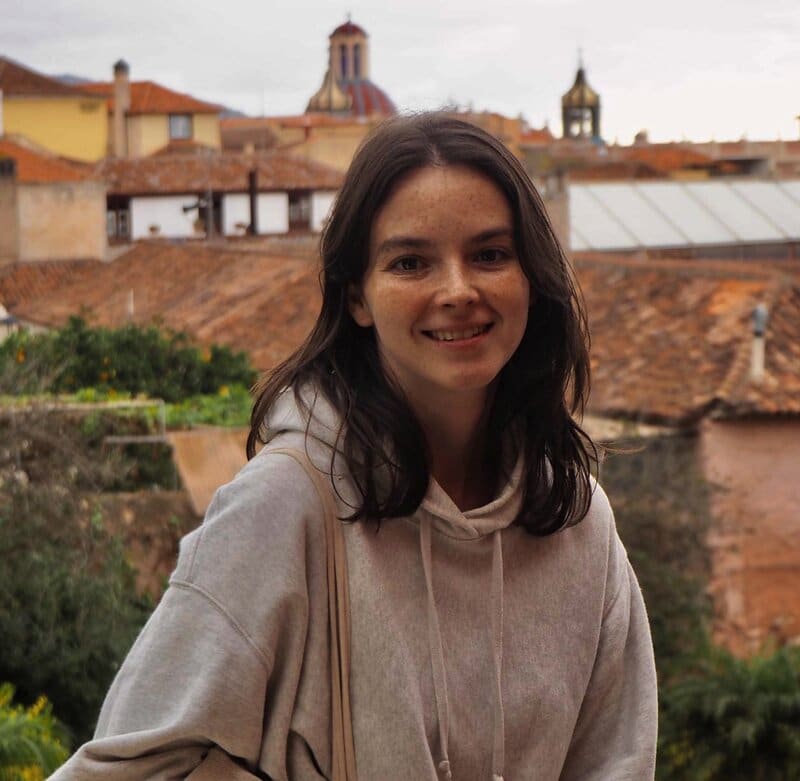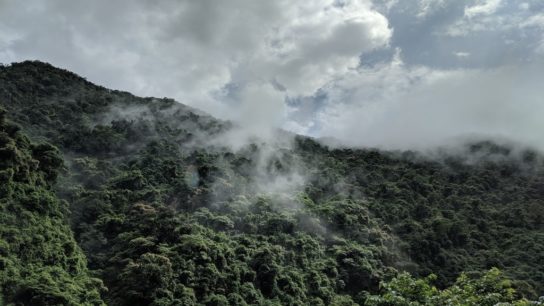Founded in 2017, Rutopia is a digital platform that connects travellers with local hosts – which are rural, indigenous communities all across Mexico willing to share the natural paradise that is their land. When booking with Rutopia, travellers have access to safe, off-the-beaten-path experiences that help conserve Mexico’s cultural and natural heritage; generate income for indigenous communities and have a positive impact on the environment through regenerative tourism. In an interview with Earth.org, Rutopia’s co-founder Sebastián Muñoz explained the importance of regenerative ecotourism and how all of this is made possible.
—
What is the Difference Between “Sustainable” and “Regenerative Tourism”?
When a company or an industry is sustainable, it means that it can sustain itself forever, without provoking any social or environmental degradation. I believe that all companies today should be sustainable – although this is, of course, not the case. When it comes to tourism specifically, there is often a high level of collateral degradation. In Mexico for example, this type of tourism has pushed people from indigenous communities to move to more “touristic” areas.
When we founded Rutopia, we not only refused to be a part of this degradation process, but we also wanted to help restore the environment and communities around us. This is the aim of regenerative tourism: to have a positive environmental and cultural impact in communities.

Community-based Tourism Refers to Tourism Experiences Hosted and Managed by Local Communities, Generating Direct Economic Benefits and are Sustainable and Responsible. Does Rutopia Ensure itself to be Community-based?
At Rutopia, one of the most important guidelines is that the people we work with should own the land in which the touristic project will take place. This means that we would never work with travel agencies external to the people and the place. In addition, the communities are always the ones to develop and own the touristic project they offer, so we adhere to helping them out with only marketing and booking. In this way, our ambition is that rural communities in Mexico have the opportunity to keep up with commercial travel agencies and achieve a sustainable income.
We have worked with private groups within communities and with co-ops. Co-ops are very resilient but also slower, since there needs to be a consensus for every decision. Private groups are more agile to work with: they are often entrepreneur families or individuals who want to share their environment and culture in different ways. In any case, our guideline is that they have to own at least part of the land that tourists will visit, as this will increase our environmental impact.
How Does Your Impact Model Work?
To cover expenses and to keep acquiring new local allies (Rutohubs, see below), we charge a markup of 15% to 25% over the cost of the experience. This will ensure sustainability of the model and long term benefits for our partners.

They charge as much as they consider reasonable and we add a markup to that total, all of which is charged to the traveller. We are very transparent about this, so tourists understand that they are paying an extra percentage to cover what Rutopia offers: a personalised, easy-to-book, safe trip. Finally, the online channels and retailers refer to other platforms that advertise our trips. I do feel it important to emphasise that there is a difference between a commission and a markup: neither Rutopia nor the other online retailers take any percentage out of the amount that the indigenous communities wish to receive.
When a traveller wants to book a trip for 12 days, for example, we fit in as many communitary projects within that time frame as we can. Many families do not want to stay in huts, and would rather stay at hotels and travel to where the indigenous groups live. Perhaps they want to see Mexico City, or areas such as Tulum, where you cannot find indigenous communities. When this happens, we create a trip with mixed experiences, striving towards having most of the money reach indigenous communities.
Do You Have Any Influence on How Rural Communities Spend Their Earnings?
This was our intention at the beginning, but we realised that every community has different needs, and we are in no place to tell them what they should spend their earned money on – if we did, this would entail a sense of superiority on our part. What we eventually want to do is have a capacitation centre where communities can learn, if they are interested, better ways of protecting the environment and managing their earnings.

What is More Important For You: the Environmental or the Social Impact?
When we founded Rutopia, my motivation was perhaps slightly more geared towards having a positive social and cultural impact, but they really go hand in hand. This is where the concept of regenerative tourism is so crucial, as it helps with both natural and cultural restoration.
Indigenous culture in Mexico has been marginalised and oppressed for centuries, and so certain traditions and languages have disappeared. When tourists show interest in these aspects, indigenous communities have a chance to revalue them. As an example, indigenous people in the mountain range of Oaxaca (southeast of Mexico) are once again teaching the indigenous language mixtec to the younger generations. With Rutopia, travellers have the chance to be immersed in indigenous communities, and so they learn about their culture and traditional practices – such as woodcarving, small-scale fishing, harvesting, and making jewellery with local materials, among others. Doing this respectfully and without folklorisation leads to not only the conservation but also the restoration of cultural heritage for these communities.
Now, from an environmental perspective, ecotourism incites communities to protect the environment. Let’s see how this works: when indigenous people do not see value in the land that they own and live in, they will cut down trees in order to have space for cattle instead, or sowing. This happens only because they reckon that these activities will bring them more income than keeping the ecosystem in its current natural state. However, with regenerative tourism, the people will see the value in the ecosystem as it is: they will want to protect the forest or jungle that they live in, as they see it as attractive for tourists and now a viable source of income. This leads to a virtuous cycle: when people take care of the ecosystems around them, the ecosystems will in turn take care of them.














